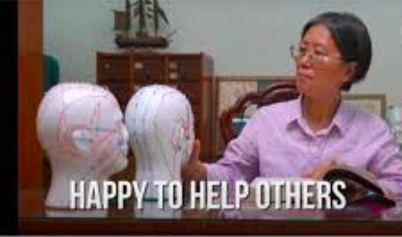Trending Stories
Overlooked medical results delay critical diabetes diagnosis for a 4-year-old girl

Critical Delays in Diagnosis: The Dire Consequences of Overlooking Crucial Medical Results in New Zealand
Overlooked medical results delay critical diabetes diagnosis for a 4-year-old girl
June 26, 2023, By Global Health Review
The New Zealand Health and Disability Commissioner (HDC) recently pinpointed a significant lapse in the medical system – doctors missing key urine test results, leading to a distressing delay in diagnosing a young girl’s type 1 diabetes.
Delayed Diagnosis: A Damning Verdict on Medical Care
The HDC released a concerning report on Monday afternoon, revealing that two general practitioners (GPs) overlooked essential abnormal urine results, directly causing a delayed diabetes diagnosis for the young patient.
These health professionals, seeing the child over two consecutive appointments, failed to adequately review and act on the test results obtained by triage nurses.
The child’s ailment was finally diagnosed a few days later by a different physician, resulting in a much-needed referral for hospital treatment. The delayed diagnosis undoubtedly led to increased distress for the child’s family.
The Breach of Medical Code and the Dire Consequences
The negligent oversight by these practitioners led them to breach the Code of Health and Disability Services Consumers’ Rights (the Code), violating the patient’s rights to receive services of an appropriate standard.
Deputy Health and Disability Commissioner, Dr. Vanessa Caldwell, underscored this crucial lapse in care. “I am critical that both doctors overlooked the urine results during their appointments with the girl.
In my view, the doctors’ omissions led to a delay in the girl being diagnosed with type 1 diabetes,” Caldwell remarked. Caldwell further noted that individual clinical failures were not the only problem.
She criticized the existing triage guidelines in place at the time of the event, highlighting their lack of clarity and how they failed to guide nursing staff effectively when dealing with a child at risk. However, she firmly emphasized that guidelines should not replace clinical judgment and critical thinking.
Taking Responsibility and the Road to Amends
Given these unfortunate events, Dr. Caldwell has strongly recommended that both practitioners provide a written apology to the affected family.
Moreover, she urged the medical center to share the HDC report widely, to ensure lessons are learned, and the staff is educated on the incident. To rectify such oversights in the future, the medical center and the doctors involved have reportedly amended their practices.
Dr. Caldwell noted, “I acknowledge that the medical center and the doctors have altered their practice to prevent any further omissions, and have created new policies and tools to better identify risk to its younger patients.”
This incident underscores the need for heightened diligence in medical care and the grave implications that can arise from even seemingly minor oversights.
Addressing Systemic Issues: An Urgent Need for Change
One of the underlying issues that this incident highlights is the critical need for improvements in health systems. The efficacy of triage guidelines, in particular, has come under the scanner.
Dr. Caldwell expressed concern that these guidelines weren’t “sufficiently clear to guide nursing staff to appropriately respond to a child at risk.”
These systemic lapses suggest that while guidelines can serve as a roadmap for healthcare professionals, they should never take precedence over the clinician’s own critical thinking and judgment.
Regardless of the protocols in place, the gravity of the situation highlights the necessity of individual responsibility within the medical community.
Raising the Bar: Commitment to Learning and Improvement
The HDC has placed a strong emphasis on turning this distressing incident into a learning opportunity for the entire medical fraternity.
The need of the hour is to increase education and awareness among healthcare professionals, encouraging them to always remain vigilant and attentive.
Notably, the medical center has taken strides to improve its procedures in light of the incident, introducing a Pediatric Early Warning Score and new policies aimed at identifying risk in younger patients more effectively.
These are crucial steps in transforming a regrettable oversight into an opportunity for systemic improvement.
The Power of Apology: Healing and Redemption
As part of the redemptive process, Dr. Caldwell strongly recommended the involved doctors extend a written apology to the family, acknowledging the distress caused by the delay in diagnosis.
An apology in this context acts as a recognition of the error, a promise of improvement, and a step towards rebuilding trust.
In Closing
This unfortunate incident, while distressing, serves as a stark reminder of the critical role that attentiveness, critical thinking, and transparent communication play in the healthcare system.
It underscores the urgent need for continuing education, system improvements, and personal responsibility in the medical field.
Original source: NewsHub
Trending Stories
Can Supplements Fix Belly Fat? Experts Weigh in on the “Cortisol Pouch” Myth
Trending Stories
Sister Regina Liu: Empowering Health Through Acupuncture

Sister Regina Liu: Empowering Health Through Acupuncture
In the bustling world of healthcare, Sister Regina Liu stands out as a beacon of holistic healing. Her journey into the world of acupuncture is not only inspiring but also transformative for the countless individuals she has treated.
Through her dedication, Sister Regina has brought traditional Chinese medicine to the forefront, offering an alternative and complementary approach to modern medical practices.
The Journey of Sister Regina Liu
Sister Regina Liu’s path to becoming a renowned acupuncturist began with her deep-rooted interest in holistic health. Born into a family that valued traditional Chinese medicine, Sister Regina was exposed to the benefits of acupuncture from a young age. Her early fascination turned into a lifelong passion as she pursued formal education and training in the field.
Acupuncture: Bridging Ancient Wisdom and Modern Health
Acupuncture, a practice with origins in ancient China, involves inserting thin needles into specific points on the body to balance the flow of energy or “qi.” Sister Regina Liu has mastered this ancient art, using it to address a wide range of health issues.
From chronic pain to stress management, her expertise has provided relief to many who had exhausted conventional treatment options.
Impact on Community Health
Sister Regina’s impact extends beyond individual treatments. She has been instrumental in educating the community about the benefits of acupuncture, breaking down misconceptions, and making the practice more accessible.
Her workshops and seminars have enlightened many about the holistic approach to health, emphasizing the interconnectedness of body, mind, and spirit.
Success Stories and Testimonials
The success stories of Sister Regina’s patients are a testament to her skill and dedication. Many individuals who had lost hope found solace in her treatments.
For instance, Maria, a long-time sufferer of migraines, experienced significant relief after just a few sessions with Sister Regina. Her story is just one of many that highlight the transformative power of acupuncture under Sister Regina’s care.
Challenges and Triumphs
Like any journey, Sister Regina’s path was not without challenges. Integrating acupuncture into mainstream healthcare faced resistance initially.
However, her perseverance and the undeniable results of her treatments gradually won over skeptics. Today, Sister Regina is not only respected in the field of acupuncture but also in the broader medical community.
The Science Behind Acupuncture
While acupuncture is rooted in ancient practices, modern science has begun to unravel the mechanisms behind its effectiveness. Studies have shown that acupuncture can stimulate the release of endorphins, the body’s natural painkillers, and improve blood circulation.
These scientific validations have further cemented acupuncture’s place in contemporary healthcare, thanks in part to advocates like Sister Regina Liu.
Acupuncture in Modern Healthcare
Sister Regina’s work exemplifies how traditional practices can complement modern medicine. Hospitals and clinics increasingly incorporate acupuncture into their treatment plans, recognizing its benefits in pain management, mental health, and overall well-being. This integration signifies a broader acceptance and understanding of holistic health practices.
Future Vision
Looking ahead, Sister Regina Liu envisions a future where acupuncture and traditional Chinese medicine are fully integrated into the global healthcare system. She continues to advocate for research, education, and policy changes that support the inclusion of holistic practices in mainstream medicine.
How to Get Started with Acupuncture
For those new to acupuncture, Sister Regina offers practical advice on getting started. She recommends finding a certified acupuncturist, understanding the treatment process, and maintaining an open mind. Her guidance helps demystify acupuncture, making it more approachable for newcomers.
Conclusion
Sister Regina Liu’s journey in empowering health through acupuncture is a remarkable tale of dedication, resilience, and success. Her contributions have not only alleviated individual suffering but also enriched the broader understanding of holistic health. As acupuncture continues to gain recognition, Sister Regina’s legacy will undoubtedly inspire future generations of healers.
FAQs
1. What conditions can acupuncture treat?
Acupuncture can address various conditions, including chronic pain, migraines, stress, anxiety, digestive issues, and more. It is also used to support overall wellness and balance.
2. Is acupuncture safe?
Yes, when performed by a certified and experienced acupuncturist, acupuncture is safe. It involves using sterile, single-use needles and adhering to proper hygiene practices.
3. How many sessions are needed to see results?
The number of sessions varies depending on the condition and individual response. Some may experience relief after one session, while others may need multiple treatments.
4. Does acupuncture hurt?
Acupuncture needles are very thin, and most people feel minimal to no discomfort. Some may feel a slight tingling or warmth at the needle site.
5. How do I find a qualified acupuncturist?
Look for acupuncturists who are certified by recognized professional organizations and have positive patient reviews. Personal recommendations and consultations can also help in making an informed choice.
References
Trending Stories
In 2 Shape Gym Unveils Major Expansion in Stourport
-

 Trending Stories1 year ago
Trending Stories1 year agoCDC: 1 in 4 Americans Still COVID-Free by End of 2022
-

 Health5 years ago
Health5 years agoMeghan Trainor Shares Motivational New Song ‘Blink’
-

 Health6 months ago
Health6 months agoHow Do Pawpaw Seeds Support Cardiovascular Health?
-

 Health2 years ago
Health2 years agoHow Long Does Monkey Pox Last Before It Surfaces in the Body?
-

 Health3 years ago
Health3 years agoWhat Causes Swollen Body? Understanding Edema and its Triggers
-

 Health3 years ago
Health3 years agoNutrition and the Importance of a Fitness Program – 3 Things to Know
-

 Health3 years ago
Health3 years ago5 Weird Reasons Why Pimples Disappear After Marriage
-

 Health2 years ago
Health2 years agoHealth Benefits Of Pawpaw Seed? 7 Things To Know







